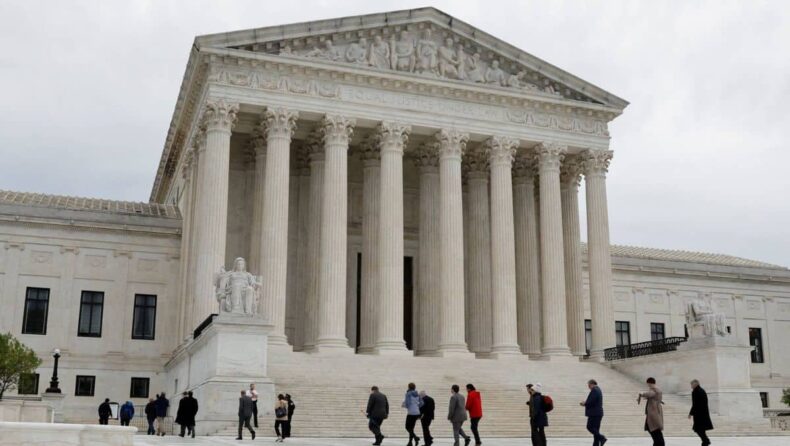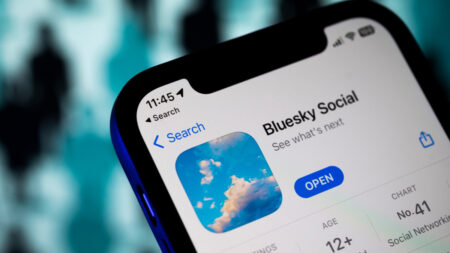The US Supreme Court is set to decide on the fate of Section 230 of the Communications Decency Act, which shields social media companies from any liabilities for third-party content hosted by them on their social media platforms.
In an unprecedented move, the US Supreme Court announced its decision to review the law, which has come under heavy criticism by the families of victims of terrorist acts and both parties—Democrats and Republicans—in the US.
The Supreme Court will be hearing two cases pertaining to Section 230 of the Communications Decency Act, one involving Alphabet Inc.’s Google and another by Twitter.
Section 230 of the Communications Decency Act of the US
In accordance with Section 230, “No supplier or user of an interactive computer service shall be treated as the publisher or speaker of any information provided by another information content source.”
In other words, organizations that host or publish speech online, such as social media corporations, are shielded from a variety of laws that may otherwise be used to make them legally liable for the words and actions of others.

What is the Google case about?
The family of Nohemi Gonzalez is suing Google, the parent company of YouTube, in Gonzalez v. Google LLC for allegedly supporting ISIS (Islamic State of Iraq and Syria) by hosting the terrorist group’s recruitment videos on YouTube.
At least 130 people were killed in coordinated strikes by the Islamic State of Iraq and Syria (ISIS) in Paris in November 2015, including 23-year-old American Nohemi Gonzalez.

The family of Nohemi Gonzalez claims in the lawsuit that Google violated the Anti-Terrorism Act by “materially supporting terrorism” by suggesting ISIS videos on YouTube.
US federal legislation known as the Anti-Terrorism Act enables citizens to seek compensation for losses caused by “an act of international terrorism.” The lawsuit claimed that some viewers were shown videos by the terrorist Islamic State organization, which took credit for the attacks in Paris via YouTube through its computer algorithms.
The US Supreme Court will therefore determine whether or not YouTube’s recommendation algorithm qualifies for legal protection under Section 230 of the Communications Decency Act and if the company bears responsibility for such content.
According to Google, the sole connection between the Paris attackers and YouTube is that one of the attackers was a frequent user and had once appeared in an IS propaganda video.
Therefore, Google claims that the court should not hastily adopt a reading of section 230 that would jeopardize the fundamental organizational choices of the modern internet.
Previously, in 2021, the 9th U.S. Circuit Court of Appeals in San Francisco dismissed the case in a decision that heavily referenced Section 230 of the Communications Decency Act of 1996.
What is the Twitter case about?
In the Twitter, Inc. v. Taamneh case, which the US Supreme Court has also agreed to hear, the American family members of Nawras Alassaf, a Jordanian citizen who died in a nightclub mass shooting in 2017 in Istanbul that was also claimed by Islamic State, accused the social media corporation of breaking the anti-terrorism law by failing to monitor the site for Islamic State accounts or tweets.

In the same judgment by the 9th U.S. Circuit Court of Appeals in San Francisco that cleared Google of responsibility for the Paris attacks, the appeals court stated that Twitter, Google, and Facebook, a platform of Meta Platforms Inc., had to face accusations that they failed to recognize and remove IS materials, which contributed to the Istanbul attack.
By making ISIS propaganda available on their platforms, Twitter, Google, and Facebook were deemed to be “aiding and abetting” global terrorism, according to the 9th Circuit Court.
Twitter has therefore appealed to the Supreme Court to review the underlying 9th Circuit decision that was decided in a manner similar to the Gonzalez case.
Where do the US political parties stand on Section 230?
Politicians from both sides of the political spectrum in the US have criticized Section 230 of the Communications Decency Act.
Republicans perceive it as a tool for censoring voices of the right, particularly after Twitter and other platforms banned then-President Donald Trump from their platforms after his supporters attacked the US Capitol in a deadly riot on January 6, 2021. When he was President, Trump unsuccessfully advocated for its repeal.
Democrats claim that the law allows social media companies to spread false information and hate speech without consequence.
What is expected from the review cases?
The US Supreme Court will decide whether social media companies will continue to enjoy immunity as per Section 230 of the 1996 Communications Decency Act or if they can be held liable for hosting and recommending terrorist content.
The judgment will be a deciding factor on how the content on social media is moderated. If the status quo stands, then little or no change is expected, but if the judgment scapes the immunity provided in the case of terrorist content, it will open the floodgates for review of other types of harmful content as well.













